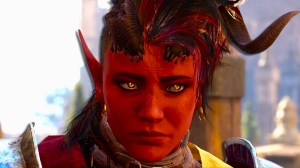The landmark Batman #100 was always meant to be a game changer for the Dark Knight and in James Tynion IV‘s hands, that means the conclusion of the much hyped “The Joker War” arc. Over the course of recent issues, readers have watched what is allegedly the Joker’s biggest, boldest plan for Batman yet—the plan to end them all destroying both Batman and Bruce Wayne in the process. Unfortunately, what is supposed to be a game-changing final confrontation ends much the same way the rest of the issues in this arc have: too much hype that fails to cohere into anything more than cluttered, over-stuffed and under-executed ideas.
Videos by ComicBook.com
The main issue with Batman #100 is that it rushes through a story primarily composed of cleanup. There are a lot of loose threads heading into this issue. There’s the matter of the Joker’s ongoing plan to massacre citizens of Gotham in theaters across the city, the actual showdown between Batman and the Joker, and then the cleanup, as it were—the handling of loose ends that will ultimately be stepping stones to a new chapter; all of these elements feel rushed. The Joker’s plans for Gotham’s citizens, Punchline, and the issue of Bruce Wayne’s money are quickly wrapped up by Barbara Gordon—who returns to the role of Oracle—and the rest of the Bat Family, which ultimately clears the deck for that Batman and Joker’s showdown. Because so much of the issue is spent on Oracle’s return, that much hyped confrontation is primarily comprised of a distracted Batman handling Alfred’s corpse and a lot of monologuing by the Joker. It ultimately proves to be like every other battle between this villain and vigilante duo.
That’s the most disappointing thing about Batman #100: there’s nothing special in how it all ends. It’s just another Batman story where nothing changes, no ground is gained or lost.

While the story ends flatly, there are still some quite good things about the issue. Harley Quinn in particular plays a significant role, though her surprisingly level-headed logic is undermined by Batman literally telling the Joker how to evade his deserved fate. It’s a major leap forward for Harley’s character still. The art throughout is also quite stunning—easily one of the most beautiful issues in this run so far. The colors are a home run.
However, in the end, beautiful art and a great shift for a popular character aren’t enough to make Batman #100 seem meaningful. Readers are left with the distinct impression that Batman really is incapable of truly doing what is necessary to protect a city he claims to love and a sense that the Dark Knight has learned nothing from these experiences. Batman’s attempt to deal with Clownhunter reveals a vigilante hero who, despite having an abundance of proof that the “my way or the highway” approach doesn’t work and causes more problems than it solves, doubles down on his own self-righteous superiority once again. It make Batman appear to be a weak man who refuses to learn from his own history—or from those who love him—and will only continue to repeat it. This isn’t about frightening the dark elements of Gotham nor is it about saving a doomed city. Batman #100 is about nothing more than Batman’s (and, perhaps, the author’s) ego. That’s both a waste of this story’s premise and a crying shame.
Published by DC Comics
On October 6, 2020
Written by James Tynion IV
Art by Jorge Jimenez
Colors by Tomeu Morey
Letters by Clayton Cowles
Cover by Jorge Jimenez and Tomeu Morey








